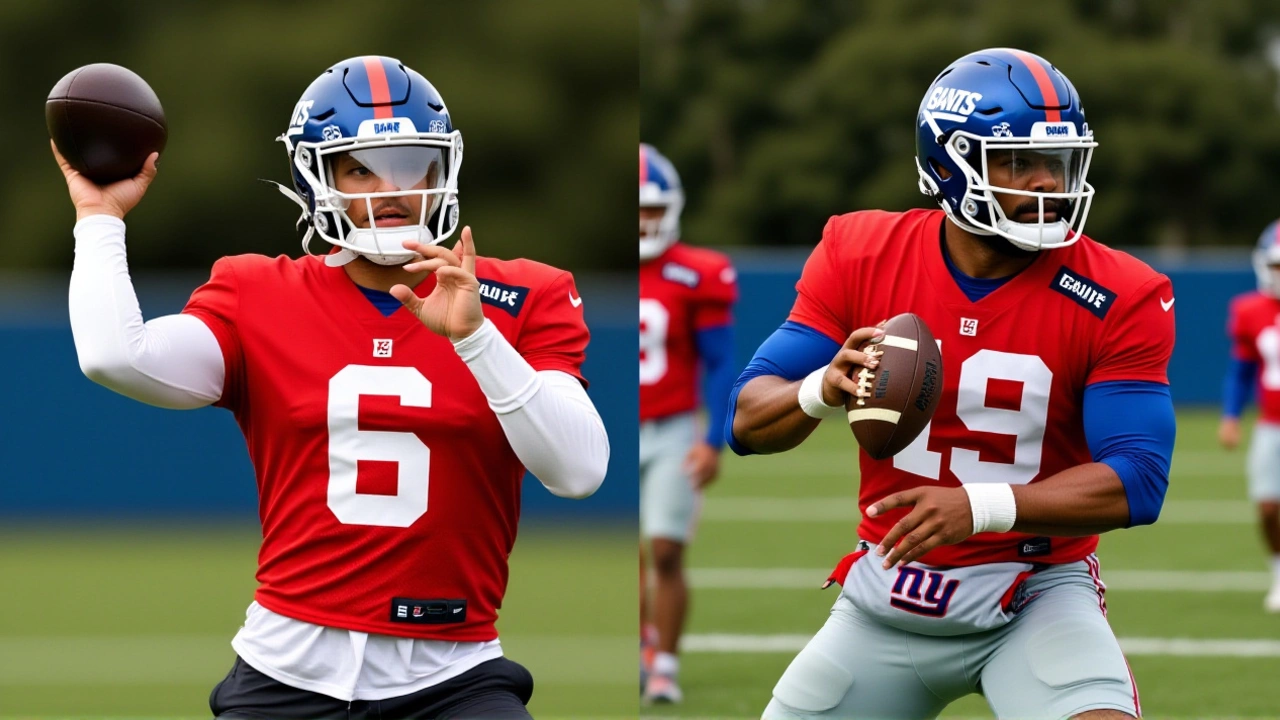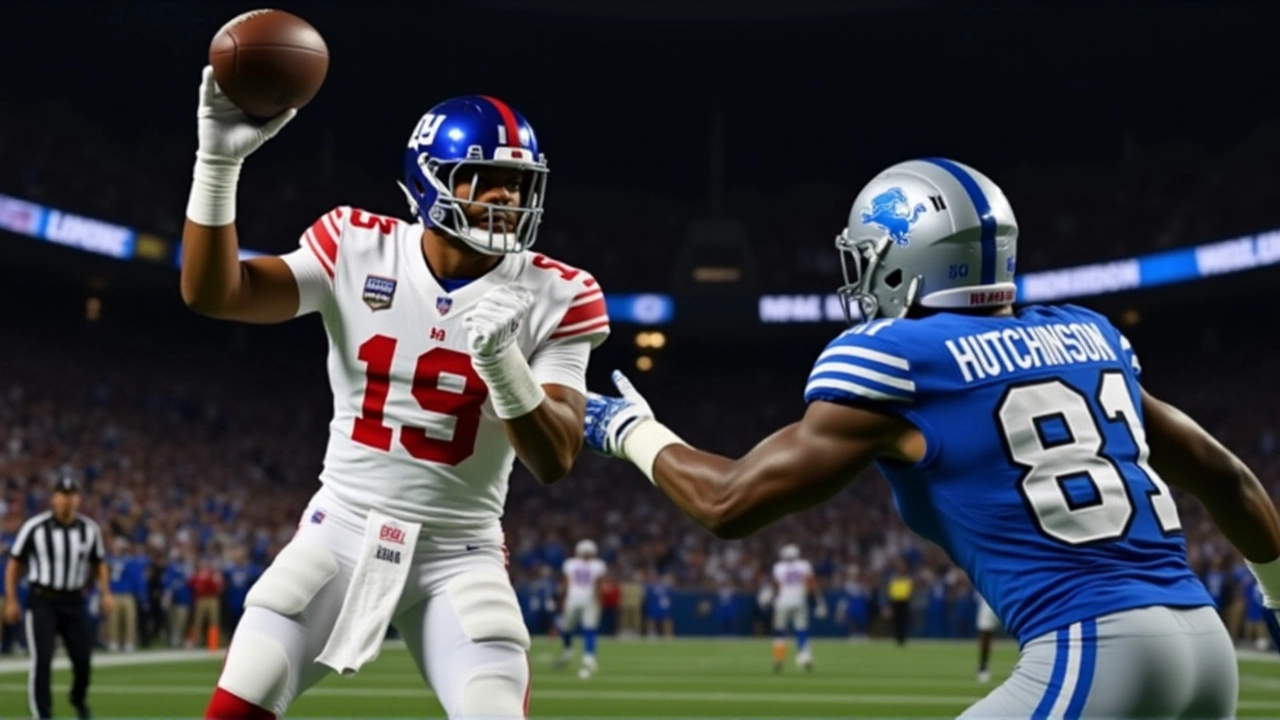With 2:14 left in regulation and the New York Giants leading the Detroit Lions 27-24, Mike Kafka, the interim head coach, made a decision that would define his short tenure: go for a touchdown from the 1-yard line instead of kicking a field goal. The gamble failed. Quarterback Jameis Winston overthrew tight end Theo Johnson. The Lions took over. They drove 97 yards. Kicker Daniel Carlson nailed a 42-yard field goal as time expired. Then, in overtime, Jahmyr Gibbs punched in a 1-yard TD, sealing a 34-27 win at Ford Field in Detroit on November 23, 2025. The loss dropped the Giants to 2-10, mathematically ending their playoff hopes with five games left. And Kafka? He stood by it. "We did want to be aggressive," he told reporters. "Just thought it was a good time to take points in that situation and go up two scores."
"I Stand By It" — Kafka’s Calculated Risk
Kafka, named interim head coach on November 12, 2025, after Brian Daboll’s departure, inherited a team reeling from injuries and inconsistency. His first major decision came in the most high-leverage moment of the season: fourth-and-goal from the 1-yard line. The math was simple — a field goal made it 30-24, forcing the Lions to score a touchdown to win. But Kafka saw more. "We had momentum," he said. "The offensive line was moving them. We’d scored three straight touchdowns. We didn’t want to give them life with a 6-point lead. We wanted to kill the game." The Giants had converted 8 of 11 third downs that day. Their offense had looked sharp. But football doesn’t reward momentum alone — it rewards execution. Winston’s pass floated too high. Johnson couldn’t adjust. The turnover on downs flipped the game’s psychology. The Lions’ offense, which had looked sluggish for three quarters, suddenly found rhythm. They ran 14 plays, burned all three Giants timeouts, and got the ball back with 0:04 left.Public Backlash — From Trump to an Injured Receiver
The fallout was immediate. Former President Donald J. Trump took to Truth Social on November 24 at 8:17 AM UTC: "Why did the New York Football Giants not kick that Field Goal??? Who would have done such a thing? It was CRAZY!" His post, signed with his signature all-caps energy, was shared over 27,000 times in under an hour. Even more telling was the reaction from Malik Nabers, the Giants’ 22-year-old wide receiver. Injured since September 15 with a torn ACL, Nabers watched from home. He posted on X: "Sometimes I think they (be) making us lose on purpose! Cause it's no way, bro you throw the ball instead of runnin it to make em burn 2 timeouts?? Then you (don't) kick the field goal??? Then they have to go down and score!!! Football common sense!!!!" He deleted it within 12 minutes — but not before screenshots spread like wildfire. Kafka didn’t flinch. "I stand by it," he repeated in a follow-up statement. "We took a chance to go up 10 points. That’s what you do when you believe in your guys."What Happened to the Giants’ Season?
This wasn’t just a bad call — it was the culmination of a season defined by missed opportunities. The Giants started 2-8. Their offense ranked 29th in points per game. Their defense allowed 28.6 points per contest. They’d lost five games by seven points or fewer. This loss wasn’t an anomaly — it was a pattern. The Giants’ next game, against the Washington Commanders at MetLife Stadium on November 30, 2025, will be a formality. No playoff implications. No draft positioning to protect — they’re already guaranteed the second-worst record in the NFL. The real question: Will Kafka be retained? Or is this just the last chapter of a transitional year?
Behind the Scenes — The Media Machine
The New York Giants Media Pass podcast, produced in partnership with iHeartMedia, Inc., dropped Kafka’s full press conference just hours after the game. The podcast, which has been running since 2005 with nearly 2,000 episodes, holds a 4.4-star rating — but listeners aren’t shy about complaints. Many cite ad volume spikes as unbearable. One review read: "I had to mute the whole thing when the Pepsico ad hit. My dog ran under the bed." Still, the podcast remains the primary source for fans seeking unfiltered access. Kafka’s words — raw, unedited, defiant — are now part of Giants lore.Who’s Really in Charge?
The Giants are owned by the Mara and Tisch families. President John Mara has been a steadying force through decades of turmoil. General manager Joe Schoen, 52, has been tasked with rebuilding. But with Kafka running the team on game days, questions are mounting: Is this his team now? Or is he just holding the seat until the next permanent hire? The Lions’ coach, Dan Campbell, is known for his emotional, aggressive style — and he won with grit, not luck. Kafka’s approach? It’s the same. But in the NFL, aggression without results looks like recklessness. The Giants didn’t lose because of one play. They lost because they’ve been losing all season. Kafka’s decision just made it louder.Frequently Asked Questions
Why didn’t Mike Kafka kick the field goal on fourth-and-goal?
Kafka believed the Giants’ offense was in rhythm and that a touchdown would put them up by 10, making it nearly impossible for the Lions to win without a touchdown and two-point conversion. Kicking a field goal would’ve made it a 6-point game, giving Detroit a clear path to victory with a touchdown alone. His philosophy, shaped by analytics and recent offensive success, favored aggression over caution — even in high-risk situations.
How did the Lions respond after the turnover on downs?
The Lions’ offense, which had been largely ineffective through three quarters, suddenly clicked. Quarterback Jared Goff led a 14-play, 97-yard drive that consumed 2:10 of clock, burned all three Giants timeouts, and ended with a 42-yard field goal by Daniel Carlson as time expired. The drive featured key completions to Amon-Ra St. Brown and Josh Reynolds, and a crucial 18-yard scramble by Goff on third-and-12.
What’s the impact on the Giants’ future coaching decisions?
While Kafka’s decision has drawn criticism, it may also signal his long-term fit. Ownership values boldness in a rebuilding phase. If the Giants’ front office sees his aggressive style as aligned with a new identity — even if it backfires — they may retain him. But if losses pile up with similar high-risk calls, pressure will mount for a more conservative hire in the offseason.
Did any analytics firms weigh in on the decision?
According to data from FourthDownAnalytics.com, going for it on fourth-and-goal from the 1-yard line with under 2:20 left and leading by 3 points has a 52% win probability in modern NFL games, compared to 48% for kicking the field goal. But those numbers assume the defense can stop the next drive — which the Giants couldn’t. The real failure wasn’t the call — it was the defensive breakdown that followed.
Why did Malik Nabers react so strongly?
Nabers, sidelined since September with a torn ACL, had been a vocal leader in practice and a symbol of the team’s young core. His frustration mirrored that of many fans who’ve watched the Giants fumble away close games all season. His post, though deleted, captured the emotional exhaustion of a fanbase that feels like it’s being led by chaos — not strategy.
What’s next for the New York Giants?
The Giants play the Washington Commanders on November 30, then face the Dallas Cowboys, Philadelphia Eagles, and two divisional opponents to close the season. Their goal is no longer wins — it’s evaluation. They’ll assess young players like Winston, linebacker Cam Akers, and rookie offensive lineman Jaylen Carter. The real draft lottery begins now: with a 2-10 record, they’re likely to pick in the top five in April — potentially securing a franchise-changing talent.
